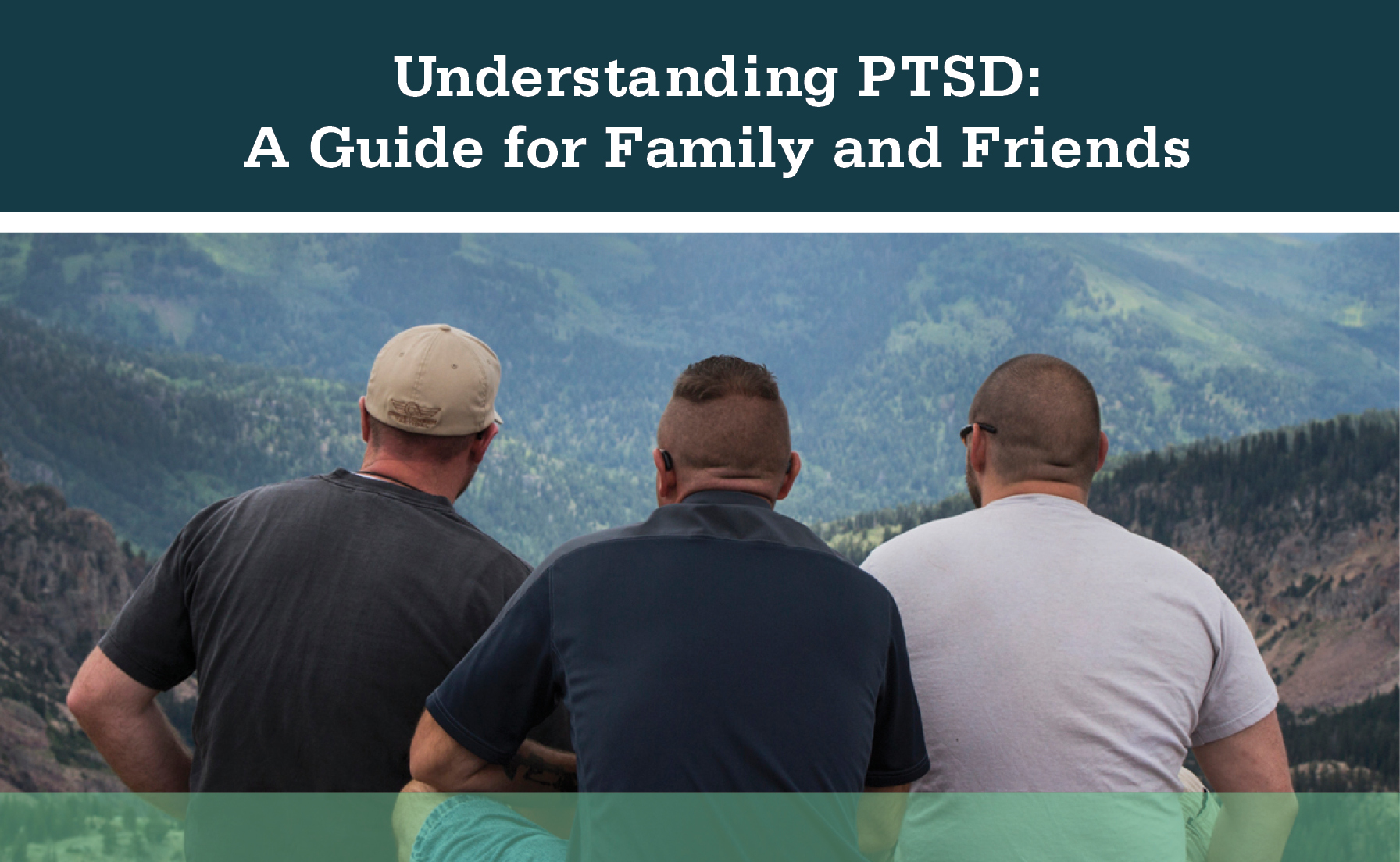“On those days when he's gone [to the VA], I have my time, to do my thing and relax.”
Beth Talbott
Family Member
Available en Español
When someone has PTSD, it affects family and friends too. As loved ones, you spend time and energy to support your partner, family member or friend with PTSD. Learn about resources for your own self-care while helping a loved one with PTSD.
Reading time: minutes
Learning about PTSD helps you to understand what your loved one is experiencing. But, you need to take care of yourself too. Your own support network — family, friends, and health providers — is a good place to start, but don't be afraid to reach out beyond that close circle. Here are some resources that can help.
You may feel helpless, but there are many things you can do. Nobody expects you to have all the answers. If you feel there is a crisis for you or your loved one, use one of these toll-free, confidential hotlines:
 is a 24-hour hotline for anyone in emotional distress. Call or text 988. There is also a live, online chat available on their website.
is a 24-hour hotline for anyone in emotional distress. Call or text 988. There is also a live, online chat available on their website.  connects Veterans in emotional distress and their families and friends with responders trained to help Veterans. The hotline is available 24/7. Call 988, then press 1 or text 838255. There is also a live, online chat available on their website.
connects Veterans in emotional distress and their families and friends with responders trained to help Veterans. The hotline is available 24/7. Call 988, then press 1 or text 838255. There is also a live, online chat available on their website.  offers 24/7 anonymous access to shelters and domestic violence programs as well as legal advocacy, public education, and training: 1-800-799-SAFE (7233) or 1-800-787-3224 (TTY).
offers 24/7 anonymous access to shelters and domestic violence programs as well as legal advocacy, public education, and training: 1-800-799-SAFE (7233) or 1-800-787-3224 (TTY). operated by RAINN (Rape, Abuse & Incest National Network) is a 24/7 resource to link victims to counseling and legal advice: 1-800-656-HOPE (4673). There is also a National Sexual Assault Online Hotline
operated by RAINN (Rape, Abuse & Incest National Network) is a 24/7 resource to link victims to counseling and legal advice: 1-800-656-HOPE (4673). There is also a National Sexual Assault Online Hotline for messaging.
for messaging. is a 24/7 resource you can contact if you suspect a child is being abused, if you fear you might hurt your child, or if you have been abused: 1-800-4-A-CHILD (422-4453).
is a 24/7 resource you can contact if you suspect a child is being abused, if you fear you might hurt your child, or if you have been abused: 1-800-4-A-CHILD (422-4453).Family members and close friends sometimes neglect their own needs when they commit themselves to caring for someone with PTSD. It is important for you to find support for yourself when you are helping someone deal with PTSD.
 referral line that connects people with important community services (employment, food pantries, housing, support groups, etc.). Dial 2-1-1.
referral line that connects people with important community services (employment, food pantries, housing, support groups, etc.). Dial 2-1-1.  offers a Family-to-Family Education Program
offers a Family-to-Family Education Program for caregivers of people with severe mental illness. You can also email or call the Information Helpline: 1-800-950-NAMI (6264).
for caregivers of people with severe mental illness. You can also email or call the Information Helpline: 1-800-950-NAMI (6264).Some of the resources listed above are specific to Veterans and Service members. Additional resources are listed below:
 .
. is a nonprofit organization offering free mental health services to US military personnel and their families affected by Iraq and Afghanistan.
is a nonprofit organization offering free mental health services to US military personnel and their families affected by Iraq and Afghanistan. Children respond to their parents' PTSD symptoms. A child may behave like the parent to try to connect with him or her. Some children take on an adult role to fill in for the parent with PTSD. If children do not get help with their feelings, it can lead to problems at school, in relationships, or with emotions (like worry, fear, or sadness).
 offers resources to help with deployments, military transitions, relocations, injuries and more.
offers resources to help with deployments, military transitions, relocations, injuries and more.
If your family is having a lot of trouble talking things over, consider trying family therapy. Family therapy is a type of counseling that involves your whole family. It is important that each member of the family, including the children, have a chance to say what they need. A therapist helps you and your family communicate, maintain good relationships, and cope with tough emotions. Your health professional or a religious or social services organization can help you find a family therapist who specializes in PTSD.
Remember, caregivers need care too. Whether you turn to your family, friends, health care providers, or the resources listed here, be sure to get the help you need. To help yourself, you need to take care of yourself and have other people help you.
You May Also Be Interested In

What you need to know to help yourself and your loved one with PTSD.